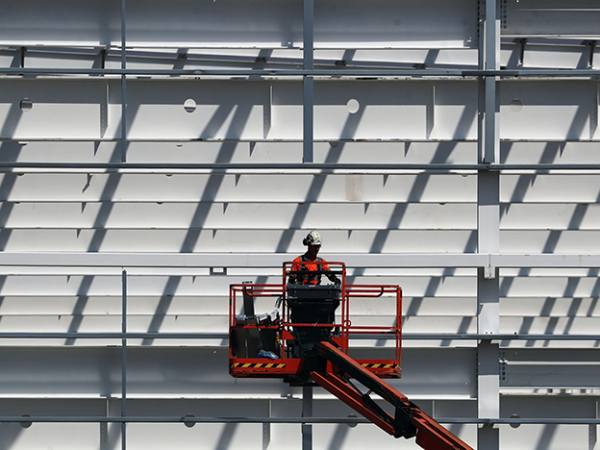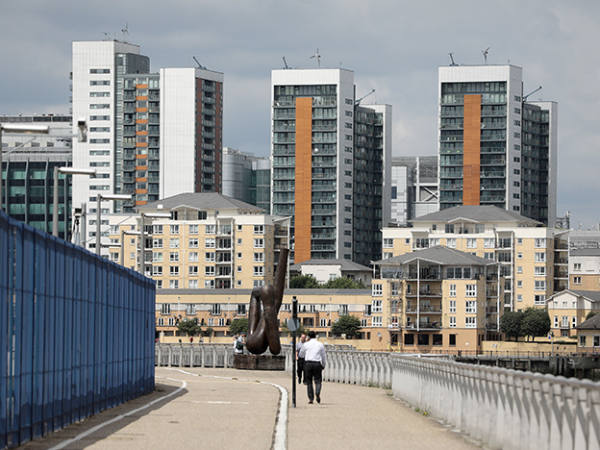- New law gives leaseholders much more power
- "A complete shake-up in the way building safety is addressed"
Last month marked the fifth anniversary of the Grenfell Tower fire in which 72 people died. To commemorate the occasion, a church service was held at Westminster Abbey, a debate was held in Parliament and survivors and bereaved families silently marched the streets.
The same month also saw the Building Safety Act come into force and the timing of this was not lost on former levelling-up secretary Michael Gove. In an open letter to the property industry reminding it of its responsibilities under the act, he wrote: “We are now five years on from the Grenfell tragedy and we should all want to fix dangerous buildings as soon as possible”.
The ambition behind the act is certainly admirable. In addressing everything from cladding remediation to the entire building supply chain, one legal expert describes it as “a complete shake-up in the way building safety is addressed by the industry”. Yet, for all its good intentions, can the new system proposed by this legislation really ensure that tall residential buildings will be safe – especially after the man behind so much of it has been sacked?
The government certainly hopes that it will and has made it clear that it expects freeholders and developers to bear the brunt of making sure this happens. The housing department, then under the control of Gove, said in April it had agreed with the UK housebuilding industry it would pay £5bn to fix building safety defects with most of the big listed residential developers signing a pledge agreeing to those terms. Some housebuilders, such as Crest Nicholson (CRST), have reflected these costs in their most recent results while others, such as Berkeley (BKG), have stated that they are still calculating how much they are liable for. Tom Douglas, partner at Eversheds Sunderland, says the act potentially means that some companies will have more to pay than anticipated.
“One of the things we are looking at when we’re doing talks with clients is auditing what they’ve got. The problem at the moment is trying to work out where the problems are,” he says.
Part of the reason some may be caught out in this regard is that the act’s scope for what freeholders – as the ultimate owners of the building – are responsible for has expanded beyond what was set out in the bill. While the bill proposed increasing the time limit for future and past cases to be brought against landlords on cladding defects from six years to 15 years, the act goes further by also giving tenants the ability to bring cases to freeholders from 30 years before the date the act was enforced. What’s more, the act introduces a schedule not in the bill which clarifies to what extent freeholders are responsible to pay for fire safety costs beyond cladding, leaving them liable to pay for building safety defects which had in the past been included in service charges. The act gives freeholders the power to chase their contractors to retrieve costs from defective construction work, but if they are unable to retrieve those costs then in most cases they will be left paying for it rather than the leaseholder.
In short, Douglas wonders whether the act could “open the floodgates” to litigation from tenants. “But, at this stage, we just don’t know,” he says. As is often the case with complex legislation, it will ultimately be court rulings from real world cases which establishes who is liable for costs under the act – with legal experts predicting that it could take another couple of years for this to shake out.
However, with Gove gone from the housing department, some such as Liam Spender, senior associate at Velitor Law, think the system could begin to swing back in favour of freeholders. He says secondary legislation defining a lot of the detail about the extent to which freeholders and leaseholder' liabilities under the act is still up for grabs and suspects that a "massive lobbying operation" is already under way from the housebuilding industry. "It won't be the same [without Gove]. It'll be less favourable to leaseholders, would be my guess," he says.
As well as defining who should pay for defects in buildings which have already been developed, the act will also require freeholders and developers to subject themselves to a reformed building sign-off system. At present, developers are required to design buildings to certain standards in order to achieve planning permission and – once the building is developed but before they move tenants in – they need a practical completion certificate from a building control body, an entity which can sometimes be part of a local authority or sometimes a private company. The act changes all that by requiring freeholders to get sign-off from a new building safety regulator, which will be overseen by the government’s Health and Safety Executive (HSE), at the planning stage, the pre-construction stage and the completion stage. The new system will also require developers and freeholders to keep a “golden thread of information” about the safety and operation of the building – something which HSE will want to see throughout the process.
The recently passed Building Safety Act and the Fire Safety Act which became law last year lay the legal groundwork for this new system, but questions remain about how it will work in practice. The first is what precisely this golden thread of information will need to comprise. Legal experts believe that this too will be spelled out in secondary legislation which they originally figured would emerge over the next 12 to 18 months. But due to current Conservative Party political turmoil and the number of ministers that have resigned from housing department as a result, this could now take longer.
The other issue for the golden thread is that the number of parties involved in a development project has historically made building information hard to gather. The government is insisting this must change, but freeholders and developers have not yet been given statutory powers to demand this information from other parts of the supply chain such as their contractors.
The government says the solution is for the industry to adopt technology in its record keeping. It stresses in its guidance that the golden thread must be digital, not paper-based. It makes sense in theory but, in practice, the industry has been resistant to technological change over the years. The government’s desire for a golden thread could help to push the industry towards greater tech adoption whether it likes it or not.
Yet perhaps the biggest unanswered question for the new regulator is not how the industry will react to it, but how it will be funded. One legal expert suggests that the government could use some of the cladding money it has squeezed from developers so far, but ultimately the regulator is supposed to be run by HSE, a department which the government has been defunding for the past decade and asking to generate more of its own income. Although it gave the department a financing boost in response to Covid, years of cuts and a mixed record of generating commercial income throughout the years have ultimately left the department with much less money that it had a decade ago – and that’s before inflation is factored in.
Regardless of how the government decides to fund this new regulator, Sarah Fitzpatrick, head of planning at Norton Rose Fulbright, believes that all of these additional checks and balances will ultimately make development slower and more expensive for developers. One such example of an additional overhead Fitzpatrick has observed is developers inviting fire safety experts into pre-planning discussions. It is a good move for safety and one which has not happened before, but she adds it has its consequences. “We’re not going to kid ourselves that this is going to be cheap and we’re not going to kid ourselves that this is going to make things quicker,” she says.
For an idea of how this all might all look in the years to come, Nick Pinder, Douglas’ colleague and fellow partner at Eversheds Sunderland, says that Qatar offers some insight. Having worked in the country for three years, he observes that building development in the country also required multi-stage sign-off by a government building regulator. As a result, he recalls that many buildings sat empty for years because they struggled to meet the requirements. Nevertheless, he believes that the system is a better one for its stringency.
“Is it by luck that we’ve ended up with a system similar to a Middle Eastern country, or is it by virtue of the fact that it’s simply common sense to have a system in which the state oversees higher risk buildings?” he asks.
This will no doubt be the legacy of the act. On balance, it certainly seems as if slower and more expensive property development is a fair price to pay if it gives the industry a chance of avoiding another Grenfell.












